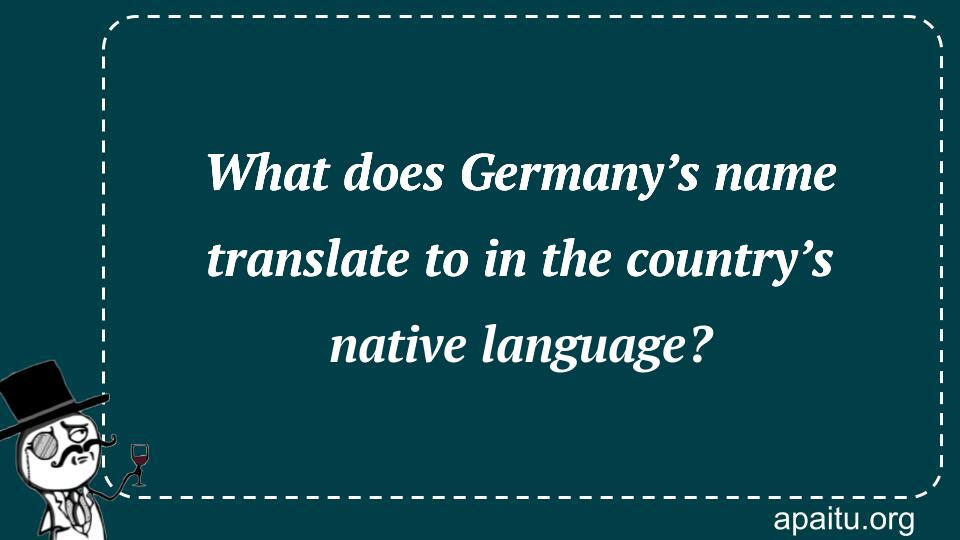What does Germany’s name translate to in the country’s native language?
Beautiful land
Land of the eagles
Mountain land
Land of the people
ANSWER: Land of the people
Germany, officially known as the Federal Republic of Germany, is a country located in central Europe. The country’s name, which is derived from the Latin word Germania, has a long and complex history, and reflects the cultural and linguistic diversity of the region.
In German, the country’s name is Deutschland, which translates to “land of the Germans” or “land of the people.” The name is derived from the Old High German word diutisc, which means “of the people” or “belonging to the people.” Over time, the name evolved to become Deutsch, which is still used today to refer to the German language and culture.
The history of Germany’s name is closely tied to the country’s rich and complex cultural heritage. The region that is now Germany has been inhabited by a wide variety of peoples and cultures over the centuries, including the Celts, Romans, and various Germanic tribes. As a result, the country’s name has evolved and changed over time, reflecting the cultural and linguistic influences of these different groups.
Germany is known for its rich and diverse cultural heritage, as well as its thriving economy and vibrant cities. The country’s name, which reflects its long and complex history, serves as a reminder of the importance of culture, language, and identity in shaping our understanding of the world around us.